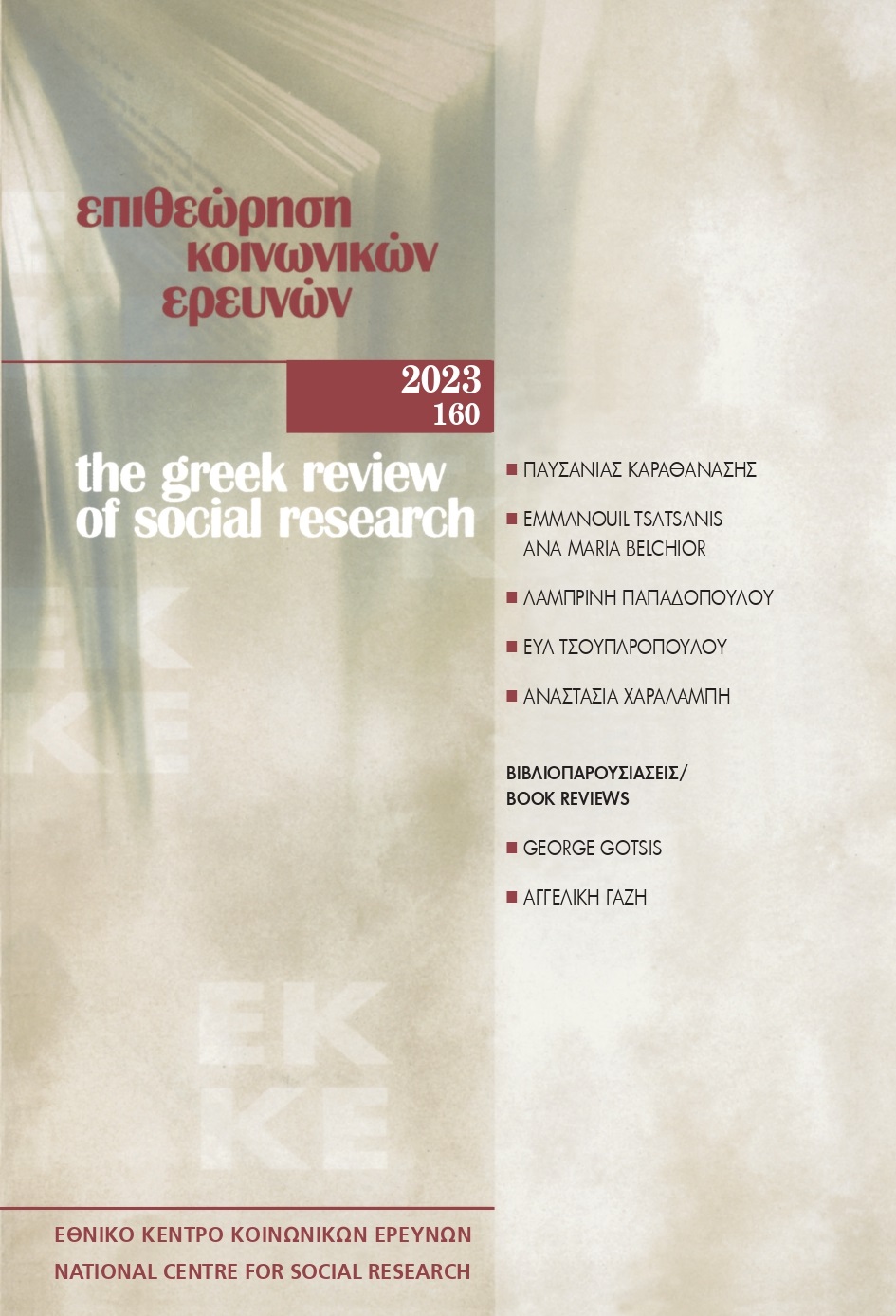Issues of non-response: greater «coverage» of the sample or consolidation of the comparability criteria in data collection?

Abstract
The issue of non-response is of great concern to social scientists as response rates decline rapidly. The increase of the number of call-backs is commonly used as a practice to address this issue. This study investigates the effectiveness of call-backs for all 36 participating countries in the European Social Survey (ESS) and for the eight rounds (2002-2016). Also, the application (or not) of harmonized methodological rules for minimum response rates and the number of call-backs so as to ensure the overtime and cross-national comparability of data is examined. The results confirm the magnitude of the problem of non-response in social sample surveys and the inability of the participating countries to apply the strict methodological standards.
Article Details
- How to Cite
-
Tsouparopoulou, E. (2023). Issues of non-response: greater «coverage» of the sample or consolidation of the comparability criteria in data collection?. The Greek Review of Social Research, 160, 107–141. https://doi.org/10.12681/grsr.33164
- Issue
- 2023: 160
- Section
- Articles

This work is licensed under a Creative Commons Attribution-NonCommercial 4.0 International License.
Authors who publish with this journal agree to the following terms:
- Authors retain copyright and grant the journal right of first publication with the work simultaneously licensed under a Creative Commons Attribution Non-Commercial License that allows others to share the work with an acknowledgement of the work's authorship and initial publication in this journal.
- Authors are able to enter into separate, additional contractual arrangements for the non-exclusive distribution of the journal's published version of the work (e.g. post it to an institutional repository or publish it in a book), with an acknowledgement of its initial publication in this journal.
- Authors are permitted and encouraged to post their work online (preferably in institutional repositories or on their website) prior to and during the submission process, as it can lead to productive exchanges, as well as earlier and greater citation of published work (See The Effect of Open Access).


